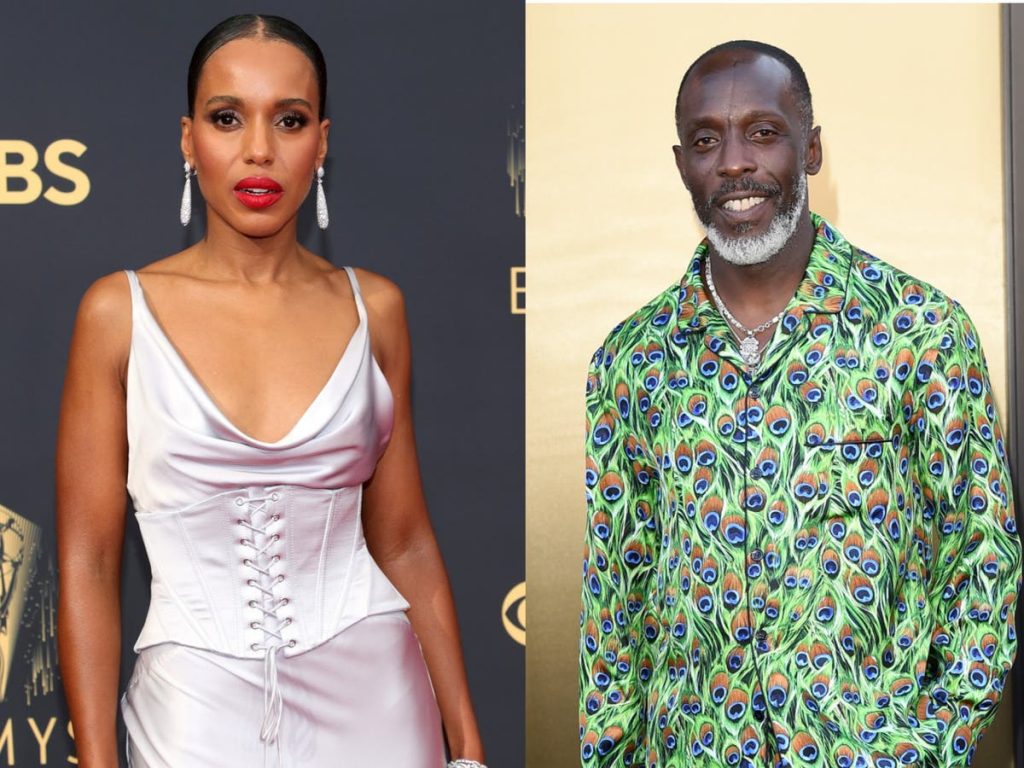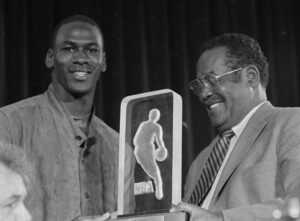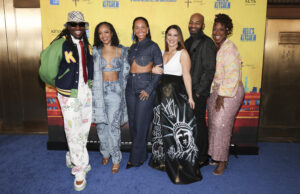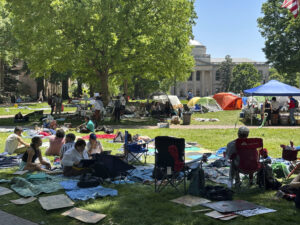Legendary choreographer, dancer, actor, producer and director Debbie Allen made history Sunday when she became the first Black woman to receive the Primetime Emmys Governors Award.
The honor is annually presented to someone with “outstanding achievement in the arts and sciences or management of television,” according to the Emmys. Chiding the organizers of the Los Angeles awards ceremony to turn off the clock, the icon delivered a speech in which she encouraged young people to “claim their voice” and expressed gratitude.
“Let this moment resonate with women across this country and across the world, from Texas to Afghanistan — let them know,” Allen said. “For young people who have no vote, who can’t even get a vaccine — they’re inheriting the world that we live in and where we lead them. It’s time for you to claim your power. Play your voice, sing your song, tell your stories. It will make us a better place. Your turn.”
And while Black Americans were rejoicing over her recognition, they also simmered at the fact that no other Black people won major acting awards at the ceremony honoring top performers in television. White actors took home all 12 of the major starring and supporting role awards.
One loss that appeared to raise the most ire was that of Michael K. Williams, the late and celebrated actor from “The Wire” who died earlier this month at age 54. Williams was nominated for his role on HBO’s “Lovecraft Country.” His nephew, Dominic Dupont, was prepared to accept the award on Williams’ behalf. That never came to pass, however, when the award went to Tobias Menies for his work on “The Crown.”

The blow of that loss was a bit softened by an emotional tribute paid to Williams by actor Kerry Washington. Williams was found dead in his Brooklyn, N.Y., apartment on Sept. 6 after an apparent heroin overdose.
“Michael was — it’s crazy to say ‘was’ — was a brilliantly talented actor and a generous human being who has left us far too soon,” Washington said. “Michael, I know you’re here because you wouldn’t miss this. Your excellence, your artistry will endure.”
Aside from Williams’ loss, other Black actors and actors of color who lost despite good odds: Billy Porter and MJ Rodriguez for their work in “Pose,” and Kenan Thompson for his work on “Saturday Night Live.”
Frustration with the results was apparent in the Twitterverse. Actor Wendell Pierce, a friend of Williams, tweeted, “The Emmys had the most diverse nominations & presenters ever seen, but the major awards were not. I wonder if all work will ever be celebrated.”
Using the hashtag #EmmysSoWhite, Los Angeles Times entertainment reporter Ashley Lee tweeted, “The Emmys is like that TV show you’re still watching *just in case* it finally does something different — but every year it proves you wrong and does the same old thing again. And again. And again.”
There were two notable wins among Black performers and creatives: RuPaul and “RuPaul’s Drag Race” for Outstanding Competition Program, and Black British actor Michaela Coel, who won for Outstanding Writing for the HBO limited series “I May Destroy You.” Coel was nominated for four Emmys.
At first glance, the lack of diversity among winners might not have been apparent. Cedric the Entertainer hosted the program at the Staples Center in Los Angeles. Filmmaker Ava DuVernay and actor Jada Pinkett-Smith presented the Governor’s Award to Allen. Actor Taraji P. Henson presented.
Still, two news organizations — Huffington Post and Rolling Stone — noted online the odd dynamic presented with multiple Black actors presenting awards and white actors receiving them. Rolling Stone labeled the ceremony a “diversity fail.”
The Emmys did not immediately respond to the criticisms.






